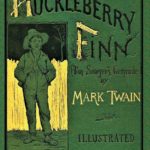BOOK BANNING SPELLS BAD COMPANY
When I was 8, my parents got me a library card. It allowed me to borrow up to three books at a time. Books took me to wondrous and otherwise inaccessible places, put me in the company of fascinating ideas and people. Advocates of the book banning movement sluicing across the U.S., on the other hand, put themselves in the company of some of history’s most abysmal people.
On May 10, 1933 a crowd estimated at forty-thousand, surrounded by young men in Nazi uniforms giving the infamous raised arm salute, cheered and chanted fire incantations as thousands of books by Jews and other ‘Un-German’ writers (meaning gays, among others) were burned in Berlin’s most famous thoroughfare.
When British forces burned key parts of Washington in the War of 1812–14, one of the targets was the Library of Congress, an act rightly reviled as barbarity.
A similar epithet was applied to Bosnian Serbs besieging Sarajevo, who deliberately targeted the National and University Library of Bosnia and Herzegovina with incendiary shells in August 1992. To add to the crime, snipers targeted firefighters and volunteers trying to save irreplaceable books and archives.
MODERN EQUIVALENTS
The targets today are mainly books intended for school curriculums. As a parent I understand concerns about what children have access to reading-wise. I don’t, for example, believe pre-pubescent children need books detailing information on sexual acts or proclivities. I also know (as does everyone else who’s managed to make it to adulthood) that nothing is more guaranteed to interest young people in a book than to tell them they can’t read it.
When I was in my early teens, a copy of “Peyton Place” was a coveted item, passed from hand to hand, the “dirty bits” bookmarked.

I seriously doubt reading it made any of us sexual predators or deviants (however one chooses to define that), or otherwise adversely affected us psychologically. As we knew in our youth and as parents we tend to forget, young people are a lot smarter than adults give them credit for.
A recent example is a report on a protest at a school board meeting where parents denounced “All Boys Aren’t Blue” as pornographic and demanded the memoir about growing up Black and queer be banned.
Students staged a peaceful counter demonstration to make the point that removing books about LGBTQ characters and racism was discriminatory.
According to a report in the New York Times, some parents “screamed obscenities and anti-gay slurs’”
I guess they’d rather their kids learn obscenity and prejudice at home. One wonders how many of them have gay children who will grow up knowing their parents apparently hold them in derision.
I had a friend in high school who made three “cry for help level” suicide attempts. Some years later, I asked him why. He haltingly confessed it was because one of his parents couldn’t accept that he was gay, and he was afraid we too would shun him if we found out. I told him his friends always suspected and didn’t care. Sadly, we hadn’t known enough, or how, to tell him.
THEN AND NOW
Hate for those “not like us” has a long history in book banning. During the 16th century Protestant Reformation, hundred of thousands of rare books and manuscripts were burned or otherwise destroyed, simply because they were in the care of Catholic monasteries.
It should also be noted that today’s “progressives” are as narrow-minded and guilty as the conservatives they decry when it comes to book banning.
Readers from all 50 states and 67 countries voted “To Kill a Mockingbird” the best book of the past 125 years in an unofficial New York Times Book Review survey.
Nonetheless, the book is among the most frequently banned or de-listed. Staff members at one school wanted it removed from the ninth-grade curriculum because they thought it marginalized characters of colour, celebrated “white saviorhood” and used racial slurs dozens of times “without addressing their derogatory nature.”
Surely addressing derogatory terms in books is part of the job of teaching them. How else do children learn why they are hurtful and therefore not to use them?

Racism and racist language were also cited as a reason to ban “The Adventures of Huckleberry Finn”. One wonders if any of the would-be guardians of racial sensitivities read it. The only consistently decent character is Jim, the runaway slave.
His moral high ground is underscored by the fact that every reference to people of colour is the ‘N‑word’, which was the norm in the period in which the novel is set. Banning it, or expunging the racial pejoratives to suit today’s standards would negate a striking lesson in why such terms and way of thinking are hurtful and morally reprehensible.
I rest my case with one piece of advice: curl up with a good book, before the willfully unlettered try to ban it.
FOOTNOTE: For anyone interested in the subject, I highly recommend “BURNING THE BOOKS: A History of Knowledge Under Attack” by Richard Ovenden, head librarian of the Bodleian Library at England’s Oxford University.
Comments are welcomed. Click CONTACT on the site header.
To receive e‑mail alerts to new posts, Click SIGN-UP on the header.
3 thoughts on “BOOK BANNING SPELLS BAD COMPANY”
The late Jonny Peters so frequently expressed his despair that up and coming Journalists had no idea about anything cos they never read a bloody book.
So well stated and so spot on.
to the tennessee school board which banned Maus, the
Pulitzer prize-winning book about the holocaust
I offer this suggestion…
better ban the internet and some teevee too.…
if Maus is banned because of nude cartoon cats
and mice and horrible words like “bitch” and
“goddamn”, social media and teevee must really
be over your line…